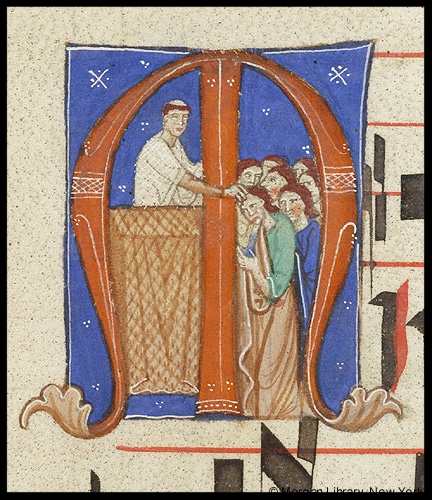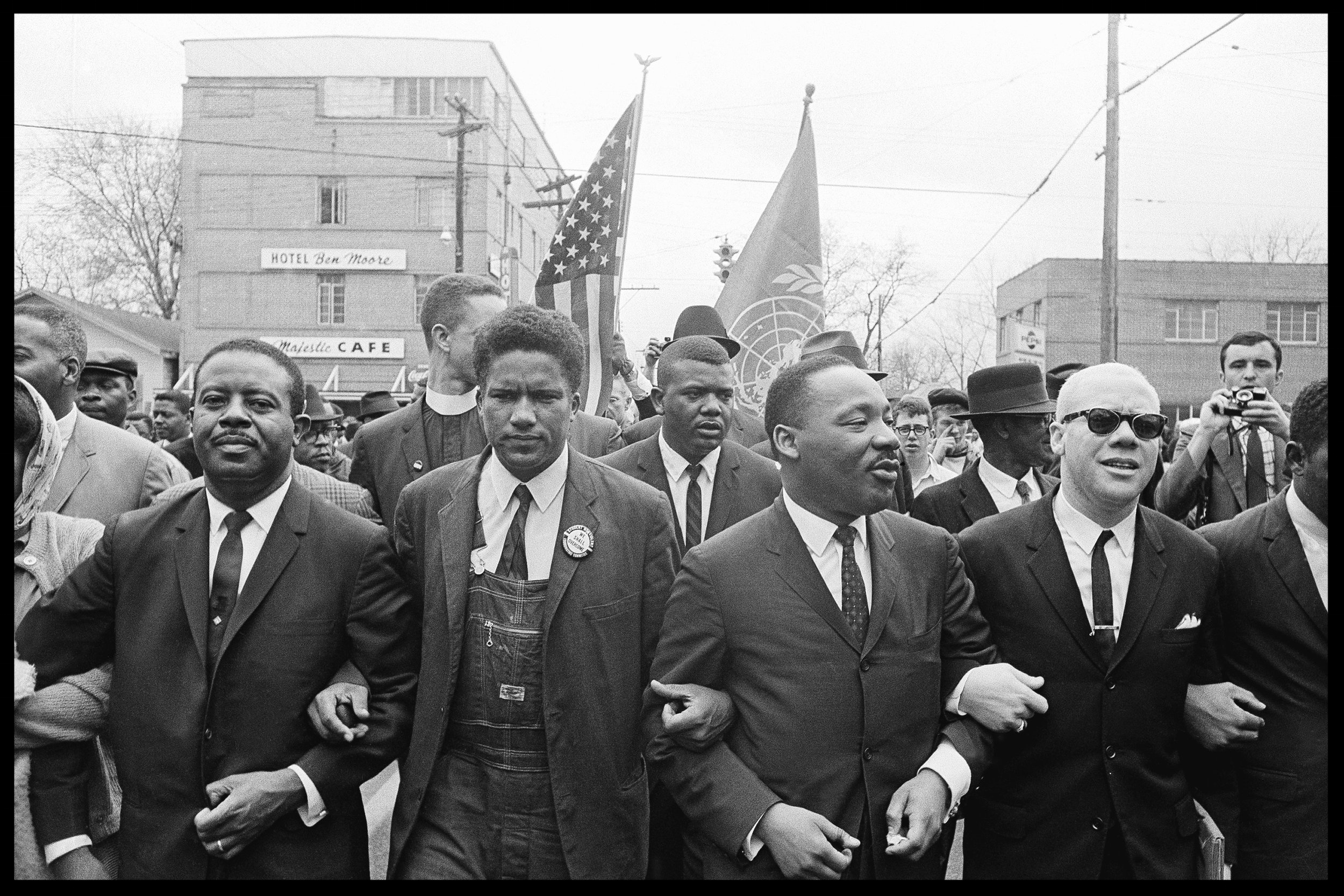In light of the annual March for Life that is held each year since Roe v. Wade in our Nation's Capital, I would like to share this splendid homily that was delivered by Fr. Sam Sawyer, SJ, at the Jesuit Mass for Life at St. Aloysius Gonzaga Church before the 45th annual March for Life in Washington, D.C., on Jan. 19, 2018.
Readings: Jer 1:4-10, Ps 139, Mt 5:38-48
Today, when you go out to the Mall and walk along Constitution Avenue to stand before the steps of the Supreme Court, will you be going out as God sent out Jeremiah, formed from the womb to be a prophet to the nations, to uproot and tear down, to build and to plant? Or will you be going out to walk those 1.3 miles with thousands upon thousands of people the way Jesus invites his disciples: turning the other cheek, rejecting the logic of violence and supremacy, willing to walk the extra mile even in the face of persecution? And even, for this is Jesus’ great challenge and invitation to us, to walk that mile with and for the persecutor?
Of course, the answer that our faith calls for is, in the great refrain of the Catholic tradition, both-and. We will be doing both—we will be speaking truth to power on behalf of the defenseless unborn and, if God gives us the grace, at the same time loving our enemies and praying for those who persecute us.
Very few if any of the counter-protestors we meet at the steps of the court will be able to recognize in our faces any love at all.
What we are doing today will be ignored by many people in our country. Many of those who do not ignore it will misunderstand and even mistrust our marching today. Very few if any of the counter-protestors we meet at the steps of the court will be able to recognize in our faces any love at all—for them, for women struggling with pregnancy and considering abortion or even for the unborn.
But you know this already. If you have managed to get from your school or campus into a pro-life meeting, onto a bus or plane and all the way to Washington, you have certainly already had your motivations and your pro-life commitment challenged and mistrusted. You have probably had someone accuse you of wanting to control women’s bodies or of hating sex or of wanting to impose a theocracy or of only caring about babies until they are born. Of course, none of these caricatures are fair to what pro-lifers believe at our best. Nonetheless, we will be mistrusted, sometimes even persecuted, and these will be the excuses.
And let’s be honest: We often return that mistrust in our assumptions about pro-choice activists and politicians and sometimes even just people who tacitly support abortion or try to let themselves off the hook with something like “Well, I don’t believe in abortion, but I can’t impose my beliefs on someone else.” We think they are willfully ignoring the science on fetal development; we are tired of the way they keep changing the subject from the hard question of abortion to argue about something like funding for contraception; we suspect that their real reason for defending abortion is because it is the final back-up to birth control and the sexual revolution cannot keep going without it. But most of all, we do not trust that they really believe in human dignity as a basic moral rule—and that often means that we feel we cannot really trust them at all.
This mistrust is neither accidental nor inevitable. It is the product of our broken politics on the abortion question.
This mistrust—on both sides—is neither accidental nor inevitable. It is the product, most of all, of our broken politics on the abortion question: Forty-five tragic years of struggling against the constitutionalization of abortion, where no real progress or compromise seems possible until we finally win at the court. Forty-five years of abortion being used as a litmus test, for or against, for which candidates can get support. Forty-five years of abortion providing a reliable wedge issue, on both sides of the aisle, to turn out the base.
Lack of trust is not a problem for partisan politics; on a wedge issue like abortion, it actually serves as an advantage more often than not. But it is a problem for the Gospel.
Considered from the standpoint of politics, it seems the right tactical move is to press whatever advantage we have as far as it will go. Pass every law we can; appoint every judge we can; and align ourselves with whoever gets us closer to the goal of overturning Roe v. Wade, no matter the other costs.
In contrast, the Gospel we heard today is a tactical trainwreck. It tells us to offer no resistance to enemies and love them instead. To be blunt, it calls for pre-emptive unilateral disarmament. To be even more blunt: When we began Mass with the Sign of the Cross, we were embracing exactly where the logic of today’s Gospel leads us and where it led Jesus.
On the cross, Jesus calls us to embrace our enemies, but we also need to remember how we got to the point of enmity to begin with. We become enemies when we lose the hope of being able to trust one another. We become enemies when our goals seem so different that we cannot imagine how we would ever walk together in the same direction for 20 feet, much less two miles.
The politics of the last year have, I fear, even further entrenched that enmity in many of our communities. We have only to look at how our politicians are, right now, trapped in a crazy zero-sum game where they cannot figure out how to pay for health insurance for children that almost everyone agrees is a good idea—or how to avoid deporting 800,000 young people who have lived here most of their lives, which almost everyone agrees is a bad idea. Even when we mostly want the same thing, we cannot figure out how to do it together.
Jesus calls us to embrace our enemies, but we also need to remember how we got to the point of enmity to begin with.
And let’s be honest again: The pro-life movement is not blameless in this mess. We have allowed our support to be claimed by politicians who are right on abortion and wrong on nearly everything else and who have a more consistent respect for the pro-life vote than they do for the dignity of every human life at every stage. And these are among the reasons that we are often mistrusted and that we will be mistrusted by many people we pass in our march today. Even if the court reversed Roe v. Wade tomorrow, that mistrust would still need to be overcome in order for unborn children to be truly welcomed in love and protected in law.
I don’t know what rebuilding that trust will look like. But I do know how the Gospel calls us to start: by turning the other cheek, by walking the second mile, by loving our enemies and praying for our persecutors. The Gospel calls us, in other words, to accompany people who do not deserve it at great risk to ourselves, and in that accompaniment both we and our enemies may be transformed by grace in ways we do not expect.
The Gospel does not call us to win. It calls us to love.
And yes, we are also called to prophetic witness, as Jeremiah was. But Jeremiah was called to uproot and to tear down in order to clear the ground to build and to plant. He was formed from his mother’s womb to call Israel back to the covenant of love for which God had created them.
So, too, when we march, we must set out both to struggle for justice for the unborn and also to call our brothers and sisters back to the recognition of God’s love for each and every human life—both for the unborn and for themselves.
I have spent long enough in the pro-life movement to know how impractical and idealistic this all sounds. And if we leave it at the level of rhetoric, then it is impractical. Talking like this is not immediately likely to change any laws, get any judges appointed or win any cases.
But the Gospel does not call us to win. It calls us to love. And when we actually go out into the world and risk taking Jesus at his word, truly loving our enemies and walking the extra mile with them, we cooperate with God’s grace, grace so powerful that it was victorious even through death. I do not know what that is going to look like. But I trust that it will be better than any victory we could win for ourselves.
















